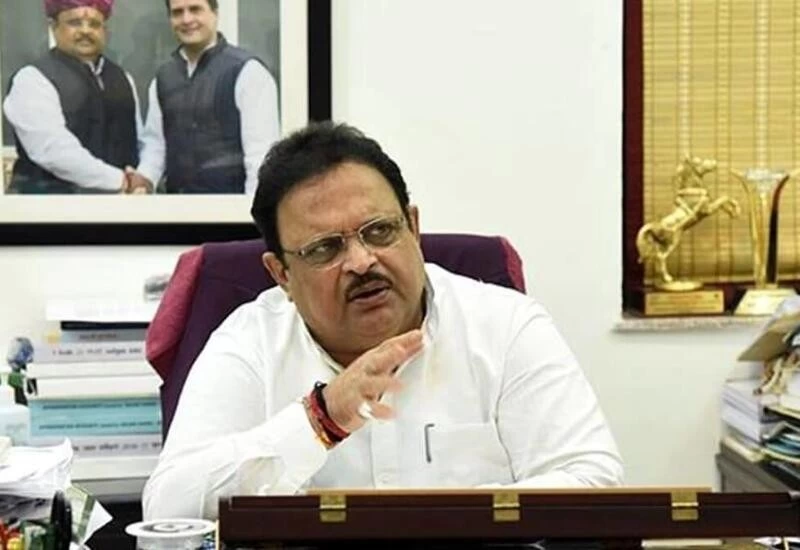Jaipur: Health Minister Dr Raghu Sharma said that according to the Sample Registration Survey (SRS) 2018, the fertility rate of Rajasthan is 2.5%, whereas the national average is 2.2%.
He said according to Millennium Development Goals, the fertility rate is to be brought down to 2.1% by the target year 2025. For this, we have to adopt the policy of ‘Hum Do, Humare Ek’ (We Two, Ours One).
The Health Minister on Friday was addressing a state-level family welfare promotion prize distribution function. He said that the problem of increasing population is getting frightening not only in India but in the entire world.
The balance of nature is continuously deteriorating due to the increasing population. This is causing problems in food grains, drinking water, housing, education, health and employment.
Dr Sharma said that ‘Population Stabilisation’ fortnight is being observed from July 11 to 24. The theme of the fortnight is ‘Aapda me bhi parivar niyojan ki taiyari, saksham rashtra aur parivar ki poori jimmedari’ (Preparation of family planning even during the crisis for the complete responsibility of capable nation and family) and this message is being carried up to villages and hamlets.
Besides this, special efforts are continuing for 100% institutional deliveries in health institutions in the State. Special arrangements are being made for institutional delivery at women hospitals even during the Covid pandemic along with equipping labour rooms with modern facilities.
He said that around 2.5 lakh sterilisations are done every year in the state under the family planning programme. He said that Rajasthan is among the leading states in the country in regard to PPIUCD (postpartum intrauterine contraceptive device) insertions.
Health Secretary Siddharth Mahajan said that the contribution of women in the sterilisation programme is about 99% and that of men is only 1% under the family welfare programme, whereas vasectomy (male sterilisation) is very easy.
He said that efforts are being made to encourage male sterilisation to make the family welfare programme successful. He said that IUCD services are being provided post-delivery at the high load delivery points.
The compensation and incentive amount for sterilisation has been increased. He informed in detail about the works being done by the department for family welfare.
Director Public Health Dr KK Sharma said that family planning is the responsibility of an individual as well as the community. He said that the increasing population can be controlled only if we ourselves adopt the means of family welfare and inspire others too.
Director RCH Dr Laxman Singh Ola said that the fertility rate of Rajasthan in the year 2000 was 4.1%, which in 2018 came down to 2.5% and at present, it is around 2.3%. He also emphasised controlling the fertility rate with time.


